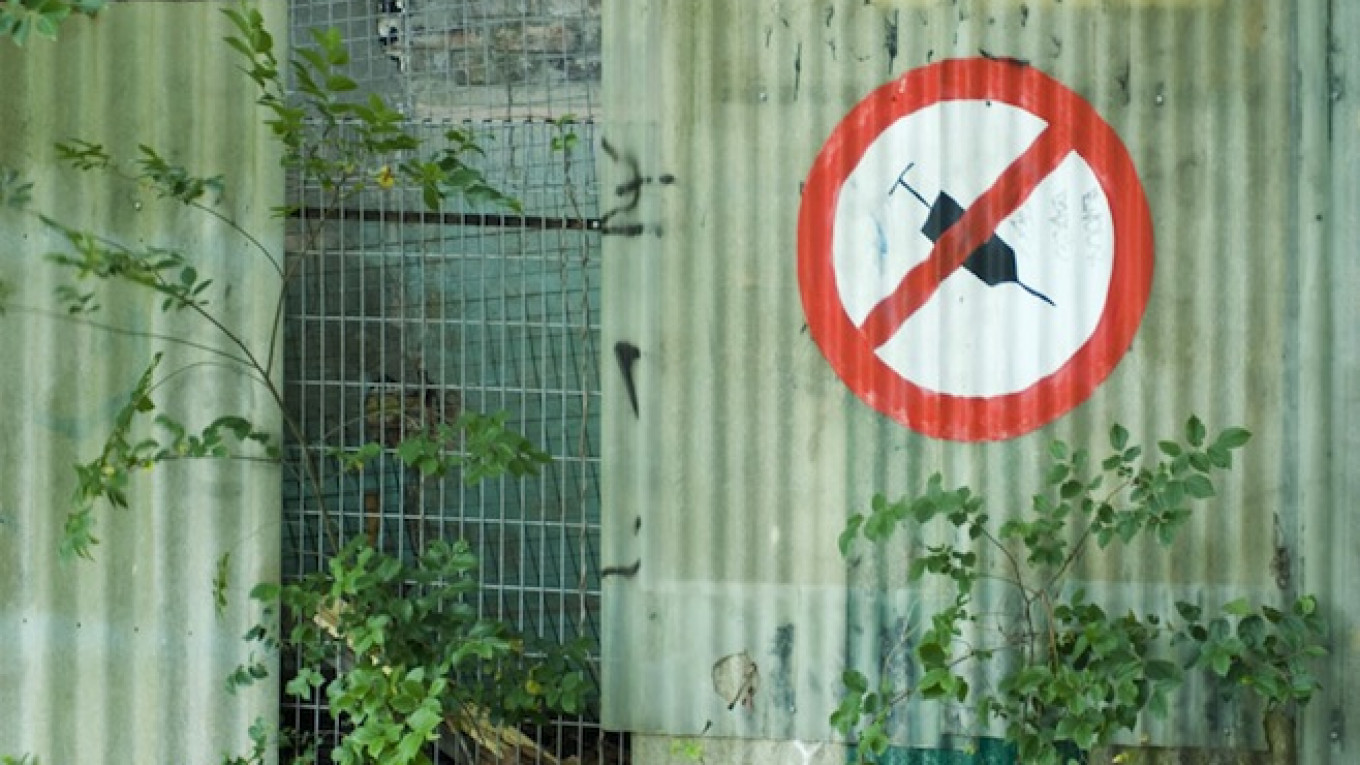Russia's drug control agency has proposed providing free housing, food subsidies and home attendants to recovering addicts to help them in their rehabilitation, in a bill that has drawn sharp criticism from opponents who argue it would encourage drug use, a news report said.
The bill of amendments to Russia's law on social services drafted by the Federal Drug Control Service would add recovering addicts to the categories of Russians deemed socially vulnerable — such as people with disabilities and senior citizens — and would entitle them to the full range of benefits the law stipulates for those groups, Izvestia newspaper reported Friday.
Addicts who have "successfully completed a medical rehabilitation program" would be able to apply for free housing, food subsidies, psychological and legal counseling, employment assistance and a nurse or home attendant, the report said.
Lawyer Yevgeny Chernousov, who specializes in drug-related cases, said that "everything except help in getting employment should be excluded from the proposed benefits," arguing that addicts "differ from other vulnerable groups in that they have chosen their fate themselves by starting to use drugs," and should deal with the consequences of their bad choices, Izvestia reported.
"But help in finding jobs should indeed be provided, because employers are reluctant to hire former addicts," Chernousov was quoted as saying.
The director of the social policy institute at Russia's Higher School of Economics, Sergei Smirnov, said he was "categorically opposed" to the current version of the bill, which does not specify how long recovering addicts could receive the benefits or what documents would be required to support a claim, the report said.
The current version would only ensure that "former addicts would become classic welfare scroungers," Smirnov was quoted as saying. "They will be able to live in a state-run house or in an apartment with all expenses paid, and will also have their laundry, ironing and cleaning done for them."
"I think people can never be fully cured of a drug addiction, but can only go into remission," Smirnov was quoted as saying. "And in those conditions, they will most likely be looking for a new fix."
The drug control agency has also recently announced plans to create a system of communes to treat drug addicts, but drug counselors — who have decried the lack of affordable rehab clinics in the country — have dismissed the proposal as an empty promise.
See also:
A Message from The Moscow Times:
Dear readers,
We are facing unprecedented challenges. Russia's Prosecutor General's Office has designated The Moscow Times as an "undesirable" organization, criminalizing our work and putting our staff at risk of prosecution. This follows our earlier unjust labeling as a "foreign agent."
These actions are direct attempts to silence independent journalism in Russia. The authorities claim our work "discredits the decisions of the Russian leadership." We see things differently: we strive to provide accurate, unbiased reporting on Russia.
We, the journalists of The Moscow Times, refuse to be silenced. But to continue our work, we need your help.
Your support, no matter how small, makes a world of difference. If you can, please support us monthly starting from just $2. It's quick to set up, and every contribution makes a significant impact.
By supporting The Moscow Times, you're defending open, independent journalism in the face of repression. Thank you for standing with us.
Remind me later.


